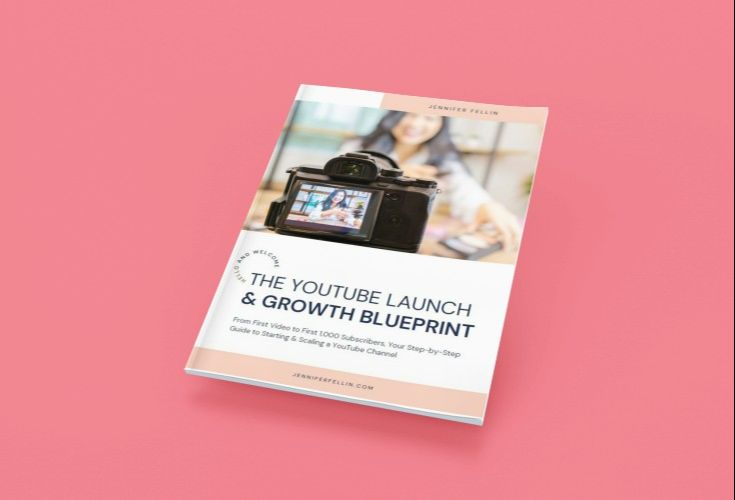Online Business Ideas You Can Start with Little to No Money
Sep 01, 2025
Starting an online business in 2025 doesn’t require huge startup capital, fancy office space, or even employees. In fact, some of the most successful entrepreneurs today began with nothing more than a laptop, Wi-Fi connection, and an idea.
Thanks to technology and the democratization of digital platforms, launching an online business has never been easier—or more affordable. Whether you’re looking for a side hustle, a path to full-time entrepreneurship, or a way to escape the 9–5 grind, there are endless opportunities to get started with little to no money.
In this article, we’ll explore 12 online business ideas you can start today that don’t require a big budget. These businesses rely more on your skills, creativity, and consistency than on financial resources.
Why Starting an Online Business Is More Accessible Than Ever
The barriers to entry that once held entrepreneurs back—expensive storefronts, large inventories, and high advertising costs—are now optional. Here’s why 2025 is the perfect time to start an online business with minimal investment:
-
Free or low-cost tools: Platforms like Canva, WordPress, YouTube, and Substack make professional branding, websites, and content creation affordable.
-
No need for physical products: You can sell services, digital products, or expertise.
-
Global reach: The internet lets you reach audiences worldwide without ever leaving your home.
-
Organic marketing channels: SEO, YouTube, Pinterest, TikTok, and email marketing allow you to grow without spending on ads.
The bottom line: If you’re willing to learn, create, and serve, you can start a business today—even if your bank account isn’t overflowing.
12 Online Business Ideas You Can Start with Little to No Money
1. Freelance Services
If you have a skill—writing, graphic design, video editing, coding, social media management—you can start freelancing with zero upfront cost. Platforms like Upwork, Fiverr, and LinkedIn make it easy to connect with clients.
How to Start:
-
Pick a niche service (e.g., “email copywriting for coaches” instead of just “writing”).
-
Build a simple portfolio using free tools like Canva or a Google Drive folder.
-
Start pitching to clients or applying to gigs.
💡 Pro Tip: The more specialized your service, the easier it is to stand out.
2. Coaching or Consulting
If you have expertise in a particular area—career development, fitness, business, relationships—you can package your knowledge into coaching or consulting services. This requires no upfront costs other than your time and a Zoom account.
How to Start:
-
Define your niche (e.g., “helping mid-career professionals transition into leadership”).
-
Offer free discovery calls to attract initial clients.
-
Use social media and networking to build trust and authority.
💡 Pro Tip: Even without a website, you can land clients by showcasing expertise on LinkedIn or YouTube.
3. Blogging & Content Creation
Blogging is a long-term play, but it’s one of the most cost-effective ways to build a business. With free or low-cost platforms like WordPress or Medium, you can start publishing content around a topic you’re passionate about.
How to Start:
-
Choose a niche with both passion and profit potential (travel, personal finance, career growth, wellness).
-
Write helpful, SEO-friendly posts that solve problems.
-
Monetize through affiliate marketing, digital products, or sponsorships.
💡 Pro Tip: Blogging compounds over time. One post can bring traffic for years once it ranks on Google.
4. YouTube Channel
YouTube is one of the most powerful platforms for starting an online business without spending money. With just your smartphone, you can create content that reaches millions.
How to Start:
-
Pick a content theme (tutorials, lifestyle, business, fitness).
-
Post consistently—at least once a week.
-
Use SEO-friendly titles and thumbnails.
Monetization Options:
-
Ad revenue (after hitting YouTube Partner Program requirements).
-
Affiliate links in your descriptions.
-
Selling your own products or services.
💡 Pro Tip: Don’t worry about perfection. Consistency beats fancy equipment.
5. Print-on-Demand Store
If you’re creative but don’t want the hassle of inventory, print-on-demand (POD) is perfect. You design products like T-shirts, mugs, or journals, and platforms like Printful, Redbubble, or Teespring handle printing and shipping.
How to Start:
-
Create simple, catchy designs using Canva or Photoshop.
-
Upload to POD platforms.
-
Promote via social media, Pinterest, or Etsy.
💡 Pro Tip: Trend-based designs (memes, pop culture, quotes) can drive quick sales.
6. Affiliate Marketing
Affiliate marketing means promoting someone else’s product or service and earning a commission when people buy through your link. It requires little to no investment and can scale over time.
How to Start:
-
Join affiliate programs (Amazon Associates, ShareASale, or niche-specific programs).
-
Create content (blog posts, YouTube videos, Instagram reels) that naturally integrates affiliate products.
-
Focus on solving problems rather than hard-selling.
💡 Example: A blogger writing about productivity could recommend affiliate planners, apps, or online courses.
7. Digital Products
Digital products—like eBooks, templates, planners, or online guides—are inexpensive to create and infinitely scalable. Once you create them, they can be sold repeatedly without extra cost.
How to Start:
-
Identify a common problem in your niche.
-
Create a simple solution (an eBook, a checklist, or a Notion template).
-
Sell through platforms like Gumroad, Etsy, or your own website.
💡 Pro Tip: Start small—your first digital product doesn’t have to be huge. A $9–$27 product can sell well with the right audience.
8. Online Courses
Online learning is booming. If you have knowledge that people want, you can turn it into an online course. Platforms like Kajabi, Teachable, or Thinkific make course creation easy.
How to Start:
-
Validate your idea by offering a workshop or mini-course.
-
Record lessons using free tools like Zoom or Loom.
-
Build your course on a free trial platform and pre-sell to your audience.
💡 Pro Tip: Start with a live course first—it requires no upfront recording and lets you test your content.
9. Social Media Management
Many businesses want to be active on social media but lack time or expertise. If you know how to create content and engage audiences, you can offer social media management services.
How to Start:
-
Pick one platform to specialize in (Instagram, TikTok, LinkedIn).
-
Reach out to small businesses in your area or niche.
-
Offer affordable packages for content creation, posting, and engagement.
💡 Pro Tip: Build your own strong social presence first—it’s your best portfolio.
10. Virtual Assistance
Virtual assistants (VAs) help entrepreneurs and businesses with tasks like email management, scheduling, customer service, or content uploading. No upfront investment is required.
How to Start:
-
List your services on freelance platforms.
-
Specialize in one area (e.g., “Podcast VA” or “Email Marketing VA”).
-
Build trust through testimonials and referrals.
💡 Pro Tip: Many VAs transition into higher-paying specialized roles (like project management or online business management).
11. Newsletter Publishing
With platforms like Substack and ConvertKit, you can start a free newsletter around a niche topic and monetize through paid subscriptions, sponsorships, or affiliate links.
How to Start:
-
Pick a topic you can write about weekly.
-
Start with free subscribers to grow your audience.
-
Offer a premium paid tier once you have consistent readers.
💡 Example: A weekly “Remote Work Insider” newsletter sharing tips, tools, and job boards.
12. Podcasting
Podcasting requires little more than a microphone (even basic earbuds can work when starting). Podcasts grow communities, establish authority, and open doors to sponsorships and partnerships.
How to Start:
-
Pick a niche topic or theme.
-
Use free hosting platforms like Anchor or Buzzsprout.
-
Promote your podcast on social media and YouTube.
Monetization Options:
-
Sponsorships.
-
Affiliate links mentioned in episodes.
-
Selling your own products or services.
💡 Pro Tip: Repurpose podcast content into blogs, YouTube videos, and social posts for maximum reach.
How to Succeed Without Spending Money
Having a business idea is step one. Execution is where most entrepreneurs struggle. Here’s how to make these no-money-startup ideas work:
-
Leverage Free Tools: Canva, Google Docs, Trello, and Zoom can replace costly software.
-
Focus on Organic Growth: Use SEO, YouTube, Pinterest, and LinkedIn instead of ads.
-
Learn Skills Online: Platforms like Coursera and YouTube offer free tutorials.
-
Start Lean: Don’t build the “perfect business” on day one. Launch, test, refine.
-
Stay Consistent: Most businesses fail not from lack of potential, but lack of persistence.
Final Thoughts
Starting an online business with little to no money is not only possible—it’s the new norm. The key is to leverage your skills, creativity, and the free tools available to you.
From freelancing and coaching to digital products and YouTube, there are dozens of paths you can take. You don’t need investors, thousands of dollars, or years of experience. You just need a clear idea, a willingness to learn, and the persistence to keep going.
So, which idea will you start with today? Remember: The best time to start was yesterday. The second-best time is now.









